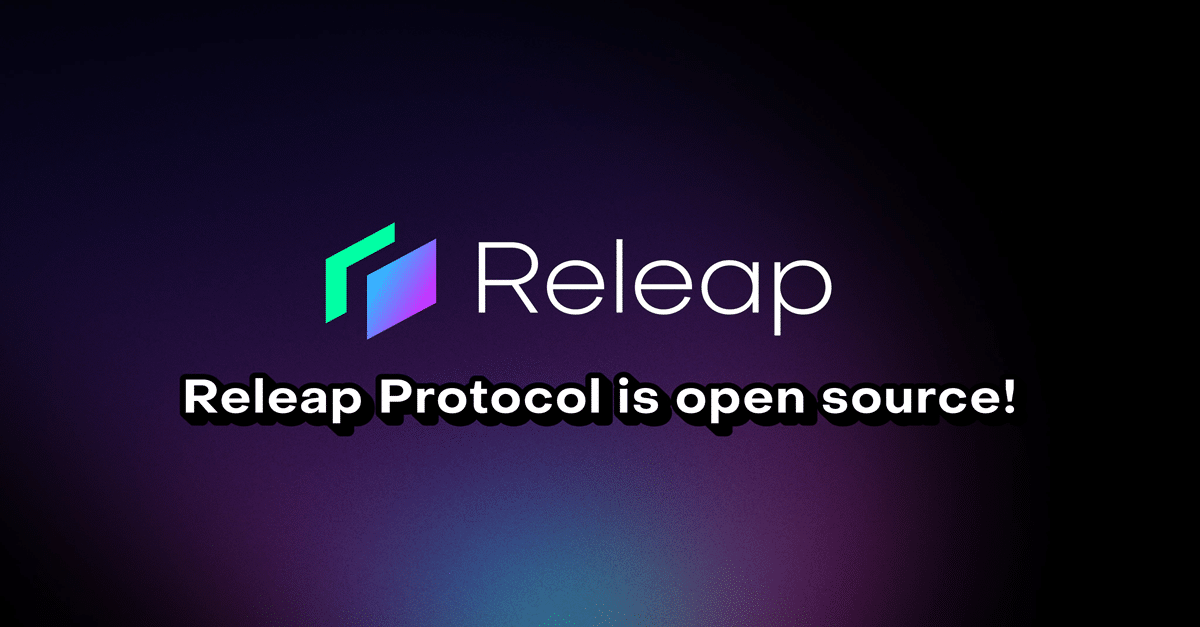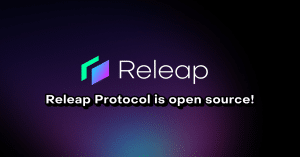Join Our Telegram channel to stay up to date on breaking news coverage
Several financial indicators will be released this week, providing insight and improving the overall market outlook. The market data include the U.S. PPI Inflation, U.S. CPI Inflation, Initial Jobless Claims, U.S. Retail Sales, and U.S. Consumer Sentiment. Observers of the crypto market expect this anticipated market outlook to trickle into the digital asset sector, triggering a rally in various tokens, particularly low-capped tokens.
Given these projections, new cryptocurrency launches, listings, and presales today are in focus. InsideBitcoins helps ease the search for such tokens, offering a selection of newly launched tokens for easy market entry.
New Cryptocurrency Releases, Listings, and Presales Today
Releap Protocol is a decentralized, multi-chain social graph designed for the SuiNetwork and zkSync ecosystems. Meanwhile, Arbitrove offers a yield-bearing index that exposes community members to various assets within the Arbitrum ecosystem. Additionally, SEDA is introducing a groundbreaking programmable oracle infrastructure aimed at redefining Web3 data standards by transcending the traditional concept of oracles.
On another front, Pepe Unchained has emerged as an advanced evolution of the original Pepe memecoin project, garnering significant attention in the digital asset market. The new token, PEPU, has already raised over $8.2 million in its ongoing presale, with a current price of $0.0090178 per unit. Furthermore, Bitcoin has experienced a turbulent journey over the past 12 days, leading to a cautious sentiment among market participants.
1. Releap (REAP)
Releap Protocol is a decentralized, multi-chain social graph designed for the SuiNetwork and zkSync ecosystems. It aims to give users complete ownership and control over their audience and content. Unlike traditional Web2 social networks, where the platform owns and controls connections, Releap enables creators to retain ownership of their social connections, allowing them to use them across various applications within the blockchain environment.
Releap Protocol’s core is its native token, $REAP, which plays a central role in its operations. Specifically, token holders can participate in governance decisions and contribute to the curation model by staking $REAP tokens. Additionally, the ability to create profiles and signal content curators on the platform is exclusive to $REAP holders. This token-driven model is intended to foster active participation and ensure that users who contribute to the protocol are rewarded.
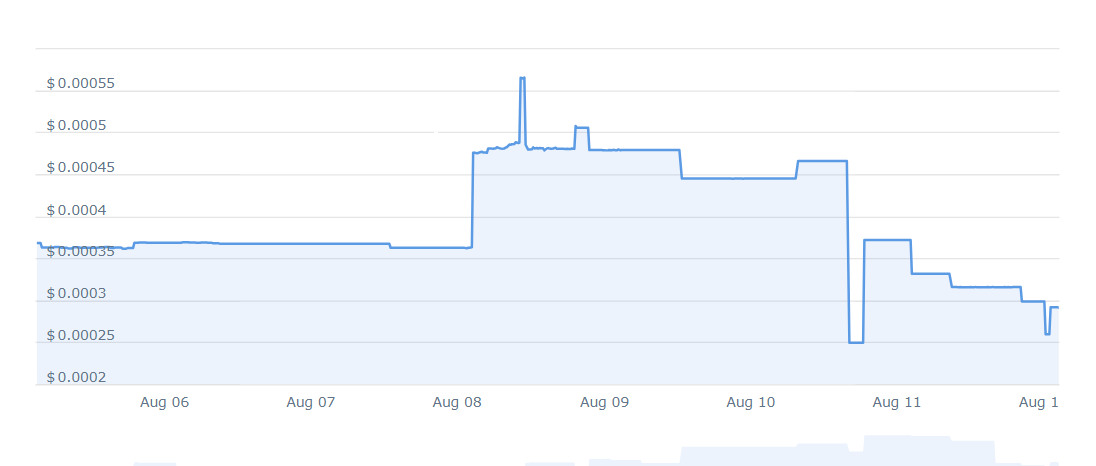
Releap Protocol seeks to address several key challenges associated with traditional social networks. First and foremost, the centralized nature of Web2 social graphs restricts creators from fully leveraging their connections outside of a single platform, thereby limiting their potential.
Its been one year since our launch on @zkSync! 🥂
To celebrate, we are releasing a limited edition campaign badge! 🥳
Check it out here: https://t.co/qkWIfGJZVT pic.twitter.com/EWlpjCEsLR
— Releap Protocol (@Releap_IO) June 7, 2024
By decentralizing social graphs, Releap gives users greater control and the ability to utilize their connections across different platforms. This approach opens up opportunities for innovation and niche applications while allowing creators to maintain ownership of their audience and content.
Releap has partnered strategically with key entities to bolster its decentralization and user empowerment vision. Collaborations with Pyth Network, VivaLeverage, Rollup Finance, Carbonio, and Poolz Finance aim to enrich the protocol’s offerings and align with its decentralization and data ownership principles.
2. Arbitrove Protocol (TROVE)
The Nitro Cartel team strongly believes in the potential of Arbitrum, a solution they view as closely aligned with the core principles of community and decentralization in the crypto space. Their primary goal is to advance the Arbitrum ecosystem, enhancing overall liquidity for both the ecosystem and individual projects.
To address these liquidity challenges effectively, Nitro Cartel has introduced Arbitrove, a yield-bearing index designed to offer community members exposure to various assets within the Arbitrum ecosystem. These assets include DeFi protocols, emerging projects, NFTs, and yield-farming tokens. Moreover, Arbitrove aims to generate returns surpassing those of the $ARBI token and other major large-cap Arbitrum tokens while carefully managing volatility and concentration risk. The index is constructed based on objective criteria such as market capitalization, valuation, liquidity, and track record, and it follows the performance of underlying assets through a mint and redeem mechanism.
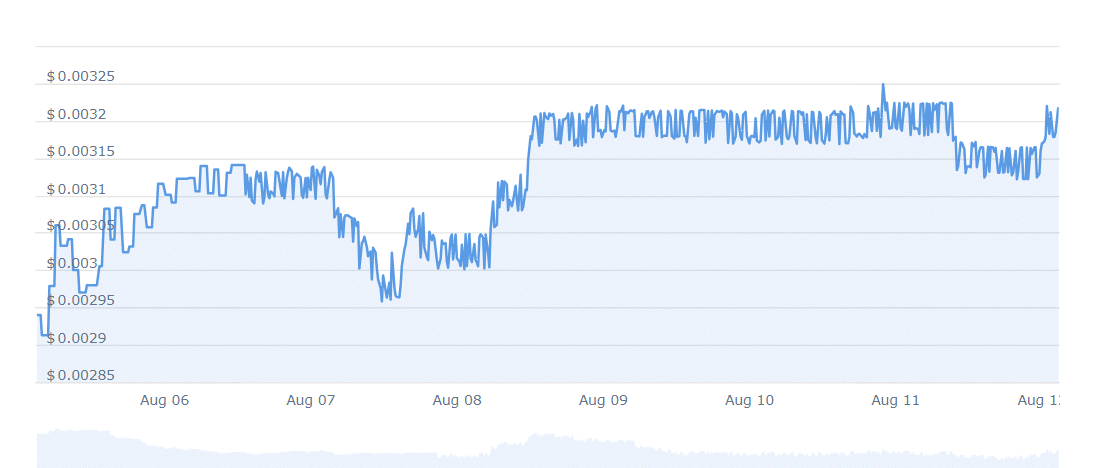
Furthermore, Arbitrove has the potential to become a standard for index tokens on Arbitrum, with applications including collateral for lending protocols and as an asset for leveraged trading. Including a wide range of Arbitrum tokens aims to effectively reduce liquidity and slippage issues, offering a more stable investment option for the community.
🚀 Launch Alert: $AI is here! Dive into the AI index with wTAO, WLD, OLAS, RNDR – all on Ethereum Mainnet!
✨ Mint & redeem with ease: https://t.co/fO8A9o6cYl
💰 Snag your early bird 5% discount on Uniswap!
Contract Address: 0x47890Da6eF5b83e0d66A962FDdD86dDcd420026b pic.twitter.com/D8A4wnpdRR
— ╼╾ Trove Protocol ╼╾ Mint GMLP now! (@nitrocartel) March 17, 2024
To further support Arbitrove’s growth, Nitro Cartel partnered with CamelotDEX to serve as a liquidity provider and VendorFi as the first lending partner for $ALP and Arbitrove. These partnerships, therefore, mark the beginning of a broader integration and composability roadmap.
In summary, Arbitrove is a strategic initiative that significantly improves liquidity and provides diversified investment opportunities within the Arbitrum ecosystem. It is supported by key partnerships that enhance its potential impact.
3. SEDA (SEDA)
SEDA’s programmable oracle infrastructure seeks to redefine Web3 data standards by moving beyond the conventional concept of an oracle. Specifically, SEDA functions as a data transmission and computation network, providing developers with a permissionless environment for deploying data feeds. Its fully modular interface also allows for precise data retrieval and computation, ensuring that results can be seamlessly integrated with networks and smart contracts.
The SEDA Network comprises two key components: first, the SEDA Chain, which handles settlement and data storage, and second, the Overlay Network, an MPC (Multi-Party Computation) network responsible for data querying and computation.
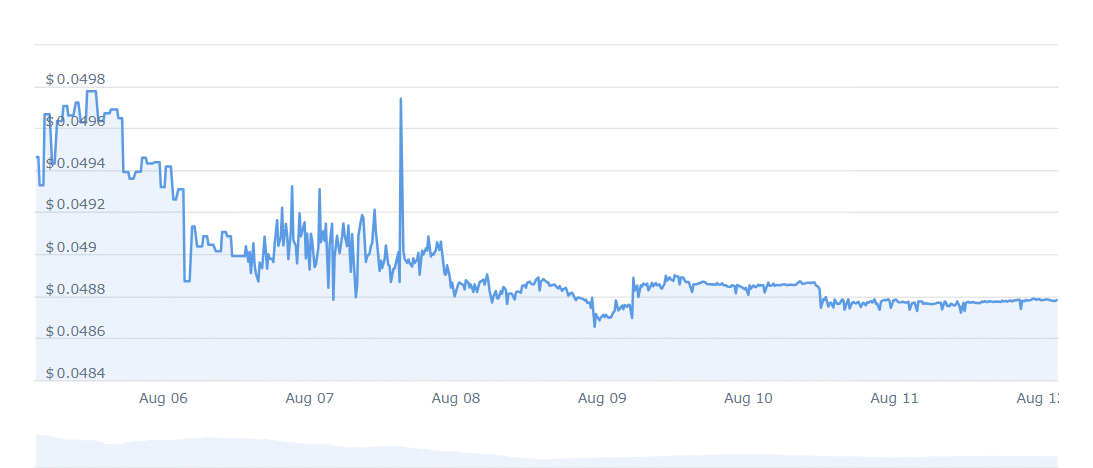
Furthermore, Solvers play a crucial role by relaying data requests and results between the SEDA Chain and destination chains, while private Data Providers contribute essential data to the network. Moreover, SEDA’s security measures, comparable to those of leading layer-one networks, are supported by game theory, cryptography, and strong backstops. The network’s design eliminates the need for a centralized authority and makes it accessible to any entity for data validation, relay, requests, and supply.
Several interconnected features characterize SEDA’s architecture: it is multi-chain native, fast, scalable, and operates on a Proof-of-Stake consensus for data provision. Additionally, the network is permissionless, highly programmable, supports forkless upgrades, and is governed in a decentralized manner. Importantly, it also allows for Oracle Extractable Value (OEV).
Unlocking chain abstraction requires proving transaction outcomes, as @thegostep from @OneBalance_io discusses in our CAMP episode.
See how @jasperflux explains SEDA's role in enabling resource locks to work, as solvers complete intents on a user’s behalf 👇 pic.twitter.com/PrJzWaqmND
— SEDA (@sedaprotocol) August 9, 2024
Regarding partnerships, SEDA has formed key alliances, including one with Alterscope, a risk-processing protocol providing real-time DeFi risk assessments. Another collaboration with BuildOnBase, an Ethereum Layer 2 solution by Coinbase, aims to deliver scalable, secure on-chain data.
Furthermore, SEDA collaborates with the Graph Protocol to integrate indexed data with smart contracts. These partnerships and recent testnet developments demonstrate SEDA’s potential as a foundational element in the Web3 ecosystem.
4. Pepe Unchained ($PEPU)
Pepe Unchained, an advanced development of the original Pepe memecoin project, has captured significant attention in the digital asset market. With over $8.2 million raised in its ongoing presale, the new token, PEPU, is priced at $0.0090178 per unit. The project operates as a Layer 2 solution on the Ethereum network, aiming to improve transaction speeds and reduce costs. This could appeal to investors seeking greater efficiency in their crypto operations.
Moreover, the project’s token distribution strategy is designed for long-term growth. Specifically, of the 8 billion PEPU tokens, 20% are allocated for the presale and another 20% for marketing. This indicates a strong focus on initial investor engagement. Additionally, 10% is set aside for liquidity, project financing, and chain operations, which may help maintain stability and trading liquidity. Furthermore, a significant 30% is reserved for staking, encouraging sustained investor participation.
We’ve raised $8M! 🎉
Thank you to everyone on the Pepe Unchained journey. This milestone brings us closer to launching our Layer 2 solution for faster, smarter blockchain experiences! pic.twitter.com/cYWYqVd3l3
— Pepe Unchained (@pepe_unchained) August 10, 2024
One key feature of Pepe Unchained is the staking option, which offers an annual percentage yield (APY) of 235%. This may attract investors interested in passive income opportunities. Moreover, staking rewards are tied to Ethereum and USDT transactions, while investors can purchase PEPU tokens using ETH, USDT, BNB, or even a credit card. This makes the project more accessible to a broader audience.
Overall, Pepe Unchained represents a noteworthy attempt to evolve the Pepe memecoin into a more technologically advanced entity, appealing to diverse investors.
Read More
Best Wallet - Diversify Your Crypto Portfolio
- Easy to Use, Feature-Driven Crypto Wallet
- Get Early Access to Upcoming Token ICOs
- Multi-Chain, Multi-Wallet, Non-Custodial
- Now On App Store, Google Play
- Stake To Earn Native Token $BEST
- 250,000+ Monthly Active Users
Join Our Telegram channel to stay up to date on breaking news coverage
